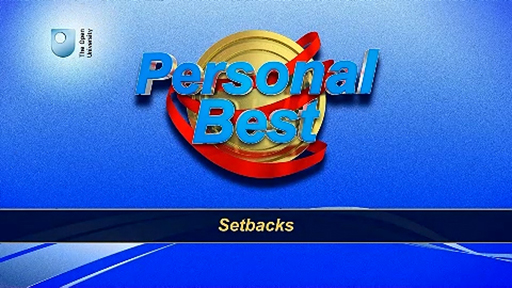2.1 Dealing with setbacks
Dealing with setbacks is an important part of self-efficacy, self-esteem and resilience. If you encounter a setback do you see it as a sign you weren’t meant to attempt that task anyway, or can you see it as a chance to learn and try again, maybe in a slightly different way?
Joseph (2018) describes three broad ways of coping with setbacks, labelled as:
- problem-focused coping – resolving difficulties by taking steps to remove threats and find solutions. Those who use this strategy can focus their attention on the problems at hand without being distracted.
- emotion-focused coping – managing one’s emotions through talking with supportive others. Through these conversations individuals can seek new perspectives, correct incorrect perceptions and find new insights.
- avoidant coping – trying not to think about the situation or finding ways to shut out any feelings.
He goes on to explain that none of these approaches are all bad. For example, it can be helpful to avoid a problem until we are psychologically ready to confront it. But his experience shows that the problem-focused approach is usually the most effective.
He concludes that coping is a skill that can be learned, the first step being to recognise our own preferred approach. Which do you use? Do you focus strongly on one, or combine all three?
Activity _unit6.3.2 Activity 3 Setbacks
Watch the brief video ‘Personal best: setbacks’ with OU sports academic Caroline Heaney, in which athletes explore setbacks they have had in the process of achieving personal goals, and the ways in which they try to deal with them productively. Note down their tactics.

Transcript: Video 3 Personal best: setbacks
Comment
Some of the tips are:
- Recognise in advance that setbacks are natural and part of the process. It is rare not to encounter them!
- Respond with a positive mindset.
- Control the controllable, accept it might all go horribly wrong but have fall-back plans and be as well prepared as possible, which shuts down the negative thoughts.
- To find out why, have uncomfortable conversations, and learn from the setback.
- Be flexible in goal setting.
Which tactics do you relate to most? Could you add any of them to your resilience toolbox for future use?

